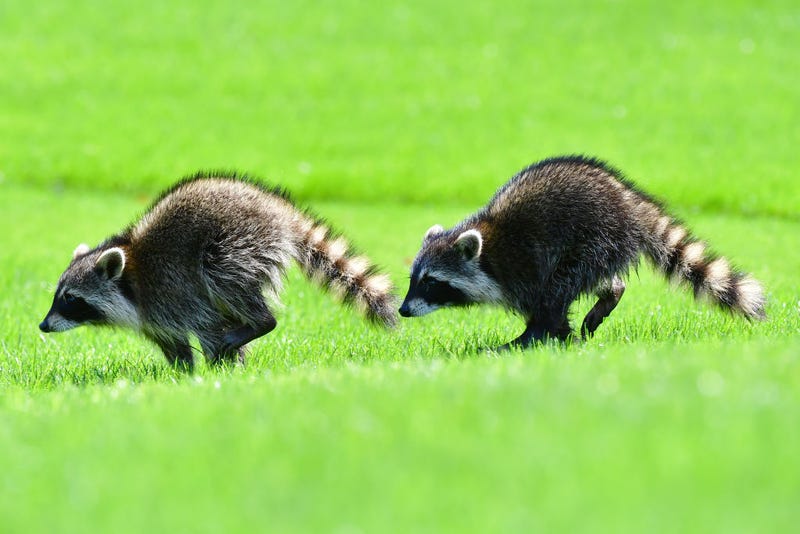
NEW YORK (1010 WINS) — The New York City Health Department said that it will work to vaccinate raccoons against rabies throughout the city starting next week.
listen to 1010 wins
Wildlife biologists with the United States Department of Agriculture will distribute individual baits containing an oral rabies vaccine, using bait stations or hand-tossing, in wooded areas in Brooklyn, Queens and Manhattan.
The city's Health Department will also fly a helicopter at low altitudes to deploy vaccine baits on Staten Island’s wooded and marshy areas from early to mid-October (depending on weather).
"Rabies is a serious disease that can affect humans and our pets," said Health Commissioner Ashwin Vasan. "New Yorkers should make sure their pets are up to date on rabies vaccinations and maintain distance from wildlife. If you see an animal you believe to be acting strangely, please call 311."
So far, the department said that 18 animals — 7 raccoons from Queens, 1 cat, 1 raccoon and 2 bats from Staten Island and 2 skunks and 5 raccoons from Bronx — have tested positive for rabies.
The bait itself does not harm people, but in extremely rare instances, exposure to the liquid may cause a rash.
In the unlikely event someone comes in contact with the liquid, they should wash hands with warm, soapy water, talk to their doctor and notify the NYC Poison Control Center at 1-800-222-1222.
The department said the bait is not harmful to pets and cannot cause rabies, but it can cause vomiting if several baits are consumed. If pets find the bait, do not try to take it away from them to avoid being bitten and exposed to the vaccine.
"While coming into contact with a rabid raccoon is very rare, raccoons are residents of our city, and New Yorkers should be advised -- if you see a raccoon, give them space, and never approach or try to feed them," said Sarah Aucoin, Chief of Education & Wildlife for NYC Parks. "We are proud to partner with the Department of Health and USDA as we take this preventative measure to launch this vaccination effort to encourage healthier wildlife in our parks."
Click here for more information on the vaccination plan.


